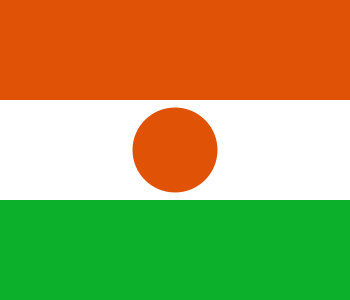Niger: Difference between revisions
imported>Joseph Krol No edit summary |
Martin Nolan (talk | contribs) |
||
| Line 13: | Line 13: | ||
==Politics== | ==Politics== | ||
The current president is Mahamadou Issoufou, who was elected early in 2011 in an attempt to return [[democracy]], after the [[military]] seized power in 2010 after Mamadou Tandja, the previous president, plunged the country into crisis when he tried to extend his rule unconstitutionally. | The current president is Mahamadou Issoufou, who was elected early in 2011 in an attempt to return [[democracy]], after the [[military]] seized power in 2010 after Mamadou Tandja, the previous president, plunged the country into crisis when he tried to extend his rule unconstitutionally. | ||
==Military Coup== | |||
On 26 July 2023, the Presidential Guard in Niger launched a coup and detained President Mohamed Bazoum and his family. Senior officers from various branches of the defense and security forces (FDS) formed a junta, named the National Council for the Safeguarding of the Homeland (CNSP), and announced the seizure of power on a televised broadcast. Public response varied, with initial demonstrations in support of Bazoum being dispersed by mutinous soldiers, followed by subsequent demonstrations in support of the CNSP. By 27 July, the Nigerien Armed Forces joined the CNSP, citing their intent to avoid lethal confrontation and to safeguard the president and his family. | |||
==References== | ==References== | ||
*World Bank, 2009 | *World Bank, 2009 | ||
*[http://www.bbc.co.uk/news/world-africa-13943663 BBC News Niger Factfile] | *[http://www.bbc.co.uk/news/world-africa-13943663 BBC News Niger Factfile] | ||
Latest revision as of 06:50, 6 August 2023
Niger is a landlocked country of Africa with a population of 15.8 million. It has an area of 1.27 million sq km (489,000 sq miles) and is one of the poorest countries in the world with a GNI of just US $340. The capital city is Niamey and the official language is French.
Geography
Niger is bordered by (starting North, going clockwise) Algeria, Libya, Chad, Nigeria, Benin, Burkina Faso and Mali. It is covered mainly in desert so the climate is generally very dry, which makes large-scale agriculture difficult.
Economy
The majority of the population is very poor. The country's economy mainly relies on uranium exports and mineral mining.
Media
Due to low literacy levels, the majority of media used in the country is radio. The majority of media is state-run.
Politics
The current president is Mahamadou Issoufou, who was elected early in 2011 in an attempt to return democracy, after the military seized power in 2010 after Mamadou Tandja, the previous president, plunged the country into crisis when he tried to extend his rule unconstitutionally.
Military Coup
On 26 July 2023, the Presidential Guard in Niger launched a coup and detained President Mohamed Bazoum and his family. Senior officers from various branches of the defense and security forces (FDS) formed a junta, named the National Council for the Safeguarding of the Homeland (CNSP), and announced the seizure of power on a televised broadcast. Public response varied, with initial demonstrations in support of Bazoum being dispersed by mutinous soldiers, followed by subsequent demonstrations in support of the CNSP. By 27 July, the Nigerien Armed Forces joined the CNSP, citing their intent to avoid lethal confrontation and to safeguard the president and his family.
References
- World Bank, 2009
- BBC News Niger Factfile
